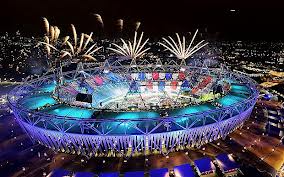By Andrew Warshaw, chief correspondent
February 13 – The long-running saga over using the London 2012 Olympic stadium for football appears to be a step closer following talks between West Ham United and legacy chiefs.
After intense negotiations Monday night a formal proposal will now be put to the London Legacy Development Corporation’s board next Tuesday, assuming the final sticking points are ironed out.
The Premier League side, the closest major club to the Stratford site in east London, have long been favourites to move into the stadium and are now reported to be close to completing a deal, but probably not before the 2016-17 season.
Ever since the Games ended amid euphoric self-congratulation, there have been fears that the iconic Olympic stadium would go the same way as many other past venues and become a little used white elephant.
The wrangling over future use, not least how to keep athletics as an integral part of a scaled-down site, undermined the promise of a legacy to be proud of as authorities sought ways of recouping the massive amounts of money spent on the Games.
London Mayor Boris Johnson, chairman of the London Legacy Development Corporation, was quoted by ITV as saying: “I can’t go into the details because negotiation is going on, but I am very confident that there will be a good outcome whatever happens, that we will have a fantastic future for the stadium – as I constantly say – with or without Association Football.”
A proposal is reportedly to be put to the Corporation’s board next week after West Ham apparently agreed to split any profits if they came under new ownership. An LLDC spokesman said: “Things are going well but we’re not quite there yet.”
Although lower-league Leyton Orient, technically the club with the most adjacent catchment area, have been pushing for permission to play at the stadium, West Ham have always been in prime position – especially when Tottenham Hotspur dropped a rival bid and decided instead to concentrate on building a new ground next to their current site.
West Ham were initially named preferred bidders to become tenants on a 250-year lease but legacy chiefs were forced to hold a new bid because of funding and legal issues.
With the local authority loaning part of the cash to convert the stadium for football, several weeks of intense negotiations took place as officials demanded some kind of concession from West Ham about what would happen if they were sold to new owners.
Critics suggest that even if an agreement is struck, West Ham will struggle to permanently fill 60,000 seats – especially if they are relegated from the Premier League before any prospective move from their current 35,000-capacity ground, or after.
Contact the writer of this story at moc.l1745118991labto1745118991ofdlr1745118991owedi1745118991sni@w1745118991ahsra1745118991w.wer1745118991dna1745118991

